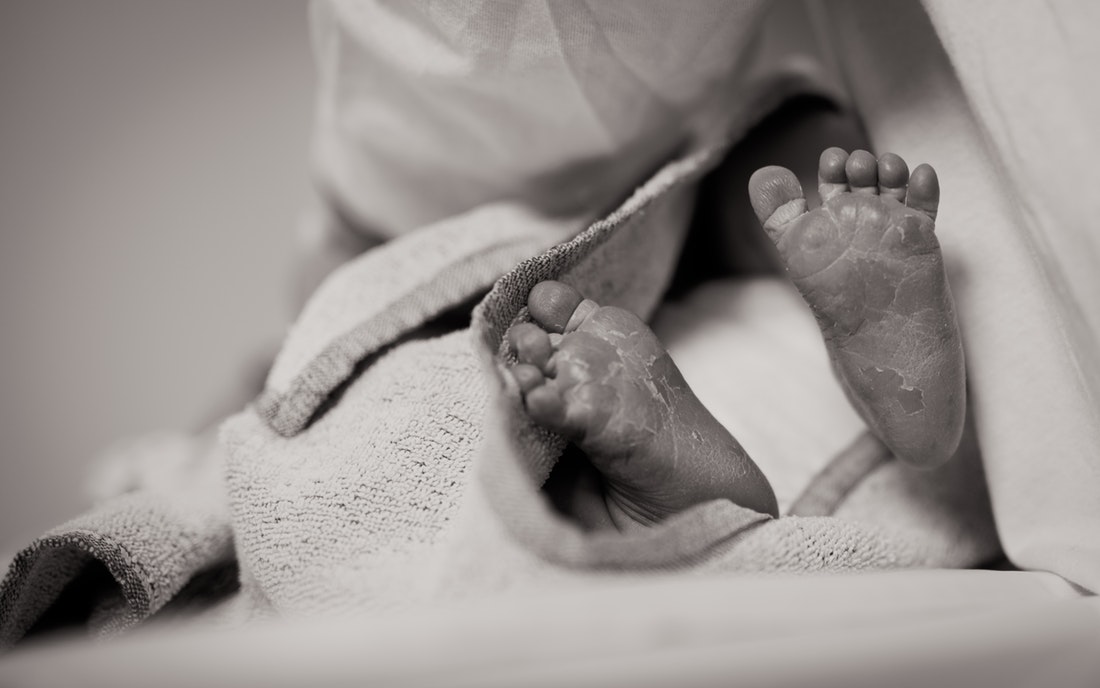Stress is an abstract phenomenon that is the seed of many illnesses in the human body. It can be the cause and sometimes, like fuel to fire. When not controlled, it causes havoc, and many people lose many things in life because of it. A miscarriage is an unfortunate event for an expecting mother, physically and mentally. Though reasons for miscarriage or abortion aren’t 100% accurate. But, some studies conducted over the years show that stress might be a huge factor for this unwelcomed occurrence.
Facts:
Around 10-20% of known pregnancies end up having a miscarriage. But the factual numbers are pretty much higher, where miscarriage happens before the pregnancy is detected! This is due to chromosomal abnormality where there are issues with development embryo.

We nowadays, usually hear, that It’s been 5+ years, the couple is not able to conceive. People usually comment on medical reasons, but did anyone think about how much stressed out is the couple or just the mother, because of which she is not able to conceive?
Stress & Miscarriage:
It is said that daily/routine stress doesn’t lead to any effects. For example, the stress caused by having a difficult day at the office or doesn’t meeting the company targets this month lead to this incident. Extreme/Severe stress like, for a couple living alone, chances can be that the would-be mother wants a family to live in, she is always felt lonely, thus she is not able to conceive. Or the other side, that the couple lives with their in-laws or in a joint family, and the daily issues at home might be causing extreme stress to the women, thus she is not able to fully relax & conceive. Stress caused by severe financial issues, or a divorce may also lead to this incident.
Be a Healthy Mother:
A lot of research & studies says, that stress can really cause miscarriages! The good news is that extra doses of progesterone might safeguard the pregnancies of women at risk. Though the cause behind most of the miscarriages is not known, doctors indicate the reason like abnormalities in the fetus or illness or health problems in the mother. But most of the doctors, gynecologists and obstetricians do not mention stress as a reason for miscarriage for a healthy mother. While they mention abnormalities in the fetus or illness or health issues in the mother. But at the same time, a study by a team in Germany, mentions that stress has a major role in maintaining the pregnancy.

Science:
The chain of events uncovered starts with the release of stress hormones such as cortisol. The moment the cortisol levels rises, they suppress the production of progesterone. This is a hormone which is very important to maintain a healthy pregnancy. A fall is witnessed in progesterone-induced blocking factor due to reduced levels of progesterone. The production of immune-signaling molecules such as interleukin-4 and interleukin-10 is triggered by PIBF and Arck found. These molecules play the role to tolerate the foreign cells of the placenta and fetus in the immune system.
Stress has always been under suspicion as a possible cause of miscarriage. High levels of emotional or physical turmoil in women’s early stages or just before conception have been regarded in several studies.
But this new research suggests that other stress hormones localize and aim at mast cells when they’re released somewhere else in the body. The mast cells are best known for causing allergic reactions and are found in abundance in the uterus.

Trimester Miscarriage:
A glitch in the fetus’s genes is a major reason for about 70 percent of first trimester miscarriages and 20 percent of second-trimester miscarriages. Sometimes during conception, the two sets of chromosomes from the egg and the sperm don’t line up at the right time. It certainly, doesn’t mean that there’s a problem with the mother or father – or that it will necessarily happen the next time.
Certain illnesses like
- Thyroid
- Diabetes
- Lupus
- Heart disorder
- Especially those that restrict blood flow to the uterus,
may increase a woman’s chances of miscarrying (because the developing fetus can’t get enough oxygen to survive). Prevention is better than Cure. In a similar way, if one manages the situation before and during the pregnancy, this can surely reduce the risk of a miscarriage. According to researchers, 90% women, aged between 18-34, with increased levels of stress hormones, had a miscarriage during first three weeks of pregnancy, as compared to around 33% women having normal stress levels. The body recognizes elevated cortisol levels as an alarm, and such conditions are not at all favorable for pregnancy.

More:
There was no association found in previous studies between elevated cortisol and miscarriage in the later stages of pregnancy. In most of the first trimester pregnancies, miscarriages occur because of the chromosomal problems with the baby. This means that the baby would be unlike to grow and develop in the mother’s womb as normal. By the 12th week, the body determines if the baby is healthy or not. Issues with Chromosomes or Chromosomal abnormalities are considered to be the primary cause of an early miscarriage. The study concluded that “evidence links increased levels in this stress marker with a higher risk of early pregnancy loss in humans”. Chromosomes are blocks of DNA. They contain a detailed set of instructions that control a wide range of factors, from how the cells of the body develop to what color eyes a baby will have.
At a times, things go wrong at the time of conception. During the conception, the fetus may receive huge chromosomes or not enough chromosomes. The reasons behind this are yet to be clear, but it would result in miscarriage due to an undeveloped fetus. It’s predicted that up to two-thirds of early miscarriages are associated with chromosome abnormalities.

This is very unlikely to recur and doesn’t mean there’s any problem with the mother or father’s chromosomes. Even though stress can cause a menace in these situations, it can be controlled through internal and external factors, by self or professional help.
Below are some ways you can handle stress during pregnancy:
- Enjoy & Cherish the happy moments
- Speak about your worries to your partner
- Rest, as much as possible & Have a great sleep
- Meditate & Focus on your Breath
- Eat Healthily, Be Healthy
- Exercise, as guided by your doctor
- Treat Yourself
- Last but not the least, Be Happy Be Peppy! 🙂
Article Credits: Hafsa Zamindar | Mumbai | India
Editor: LivePeppy
Click Here to Follow the Writer on Facebook
Click Here to Follow the Writer on LinkedIn





Hi there! This post couldn’t be written any better! Reading through this post reminds me of my previous room mate! He always kept talking about this. I will forward this article to him. Pretty sure he will have a good read. Thank you for sharing!
The human body is especially for movement, not to be stationary for long periods every holiday weekend. I would love to look at a training class along with you and spouse and children!